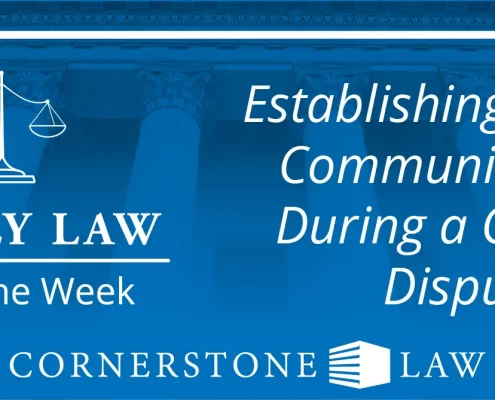
What is a Power of Attorney in Pennsylvania?
Custody, Estate Administration, Probate, WillsPower of Attorney is a document granting one person the ability to make decisions regarding property and possessions on behalf of another. The power of attorney document (POA) is named this because the agent can act in many ways as an attorney…

Establishing Healthy Communication During a Custody Dispute
Custody, Divorce, Family LawWelcome to Family Law Tip of the Week, a regular series on our blog where we offer tips on how to go through divorce and custody disputes in an amicable way. Divorce should always be a last case resort but if you are going through it, we want…

Do We Need a Divorce Lawyer if We Don’t Have Anything?
Custody, Divorce, Family LawWelcome to Family Law Tip of the Week, a regular series on our blog where we offer tips on how to go through divorce and custody disputes in an amicable way. Divorce should always be a last case resort but if you are going through it, we want…

Family Law Tip of the Week: When to File for Child Support
Custody, Divorce, Family LawWelcome to Family Law Tip of the Week, a regular series on our blog where we offer tips on how to go through divorce and custody disputes in an amicable way. Divorce should always be a last case resort but if you are going through it, we want…

Four steps to take when you’re served with a false Protection from Abuse Order
Berks County, Civil Law, Custody, DivorceProtection from Abuse Orders, or PFAs, are the mechanism that Pennsylvania uses to protect someone claiming to be the victim of domestic violence. Some states refer to this as a “restraining order,” but in Pennsylvania, the concept is strictly…
